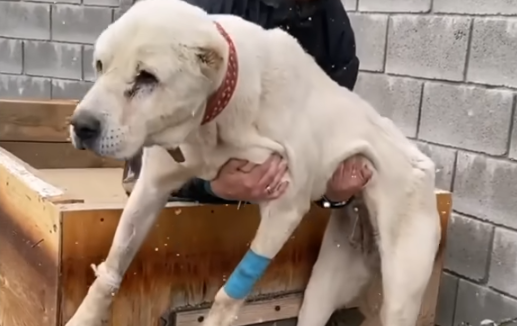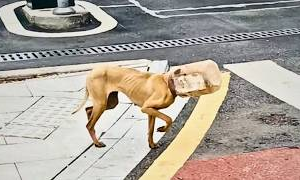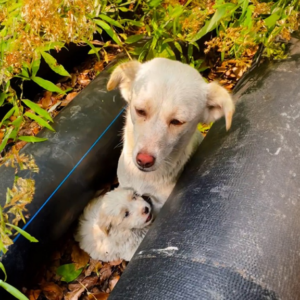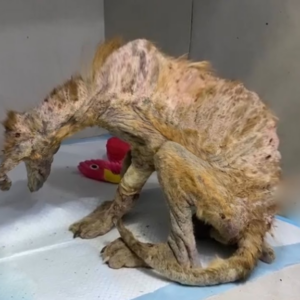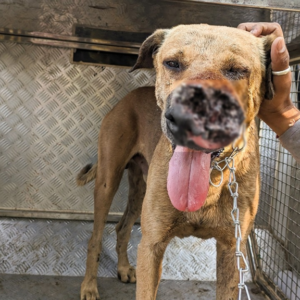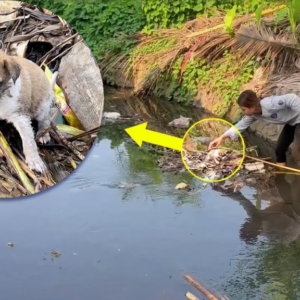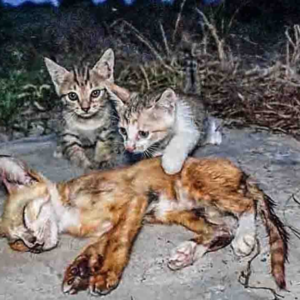
“Don’t Waste Time For Me,” her eyes seemed to say, as if she had resigned herself to a life of quiet suffering, a life without kindness or love. Snow, as rescuers would later name her, lay on the ground—a large dog whose frame had been betrayed by hunger and neglect, her ribs starkly visible under her frail skin. At around 8 to 10 years old, she was not only physically drained but emotionally broken, her spirit worn from years of hardship. Her weary eyes barely opened, her gaze dimmed by fatigue and hunger, and she seemed to have given up hope that anyone would care. Snow waited silently, without protest or expectation, for whatever fate lay ahead.
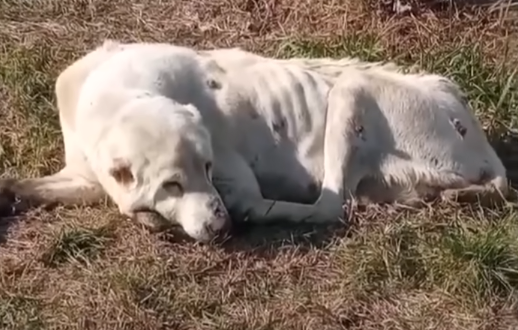
How long had she been here, lying on the cold ground, enduring this loneliness and pain? Snow’s body was a map of suffering—her once-strong muscles had withered, leaving her weakened and vulnerable, a mere shell of the dog she once was. She had no strength to lift her head, no energy to stand. All that remained was a solemn acceptance, as if she had decided long ago that her life held no further meaning. Snow was quiet and still, patiently awaiting the end, her heart too tired to hope, her soul too worn to resist. The world around her carried on, indifferent to her silent suffering, oblivious to the pain etched into every fiber of her being.
When the rescue team approached, Snow did not react. She did not flinch, growl, or cower, making it easy for them to come near her. They moved carefully, needing to muzzle her to ensure both her safety and theirs, though Snow showed no sign of resistance. It was as if she had simply surrendered to whatever might come, her spirit too exhausted to resist. Gently, they lifted her frail body into the car, driving her to a nearby veterinary clinic known for saving hundreds of stray dogs each year. Yet, for each life they saved, there were others that did not survive. Snow’s fate was uncertain, but the team held onto hope for her, hoping that she might find healing here.

Upon arrival, Snow was immediately given fluids and injections to help stabilize her. She received an ultrasound, a necessary step to check for any internal issues that her tired body might be hiding. The clinic’s veterinarians worked quickly, aware that every moment counted. They had seen many cases like Snow’s before, and they knew the road to recovery would be long and filled with uncertainty. Still, Snow’s journey began with compassion and care, a rare kindness she had perhaps never known.
The rescue team named her Snow, a name that carried a glimmer of hope—a reminder of resilience, of something pure and soft, untouched by cruelty. For the first time, Snow lay in a place of safety, surrounded by people who cared. Though her body was weak, though she had once given up, Snow’s story now held the possibility of healing, a chance for redemption after a lifetime of pain. And perhaps, with time and love, Snow’s weary heart might learn to hope again, to trust, and to find peace in the warmth of human kindness.
